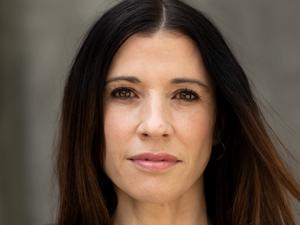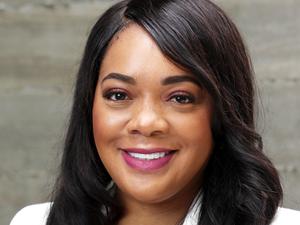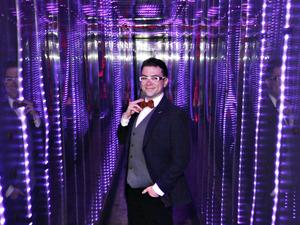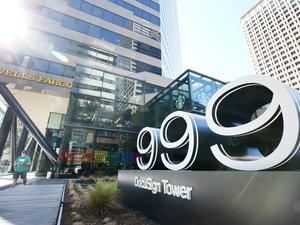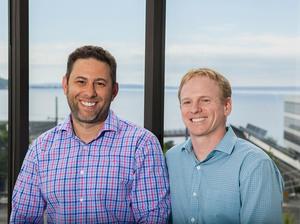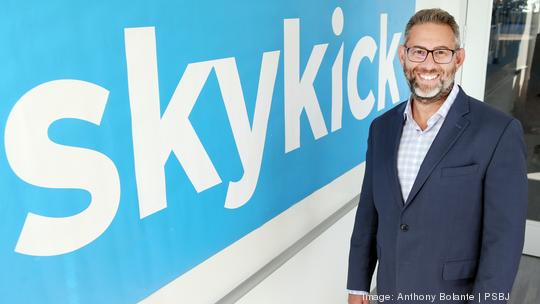
SkyKick co-founder and co-CEO Todd Schwartz was on a deployment to Bosnia in the mid-90s when he decided to go into tech.
Schwartz, then an officer in the Army, was inspired by an article about the advent of the internet. When he eventually left the Army, he did consulting at Accenture before going to graduate school at MIT, where he became friends with his future SkyKick co-founder and co-CEO, Evan Richman.
SkyKick, a cloud automation company founded in 2011, made headlines in September with a $130 million financing round. It works with IT providers to better serve small- and medium-sized businesses (SMB) as they work in the cloud. The company has an aggressive goal to help 1 billion small businesses in the cloud.
“As much as the cloud has been adopted and the pandemic has accelerated that, I think penetration within the SMB market and adoption across workloads in the SMB market is still (in its) very early days,” Schwartz said.
The Business Journal sat down with Schwartz to talk about SkyKick’s culture and the company’s growth after its big funding round.
About Todd Schwartz
- Company: SkyKick
- Employees: About 250
- Role: Co-founder and co-CEO
- Age: 49
- Hometown: Colorado Springs, Colorado
- Residence: Belltown
- Education: MBA from MIT Sloan School of Management
- Interests outside of work: Skiing, golfing and traveling
What are your plans with the $130 million? We actually have one of the largest customer bases of these IT service providers in the world. We have over 30,000, and we operate in 100 markets. Our headquarters are here in Seattle, but we have offices in Amsterdam, Tokyo, Sydney and a couple in the U.S. There’s like 1 million IT service providers, so we’ll use the capital to go help more partners. We’re going to help them in two ways. We have a pretty robust product roadmap and a very powerful set of products, so we’re going to invest heavily in new products. And then we’re going to invest pretty heavily in the success of our partners across sales, marketing and support.
What are the plans for your office space in Uptown? We have a lot of office space here in this building. Even with our growth plans, we were planning for the future. We’ll see I guess. This pandemic world with remote work, we’re going to see what happens to the office space. Does it go to more of a hoteling and hybrid model? Do we eventually come back to the office? Are we going to be more remote? We’ll always have a presence. We’ll always have an office. We’re just watching what’s going on with Covid, health concerns, employee safety concerns and employee satisfaction. We’re balancing a lot of things, but we have plenty of space here.
How are you managing your return to the office? We’ve built a pretty special culture with the company. We had a very robust work remote policy before, but a lot of people came into the office because they really liked the atmosphere. They really liked working with their teammates. We’re staying close to the pulse of our employees. What do they want? But how do we continue to keep that culture alive? That is a big challenge that I think a lot of companies are struggling with.
The company plans to add 100 employees to its roughly 250-person team over the next year, keeping its current ratio of about two-thirds of those employees based in the Seattle area. Why keep hiring in Seattle, where salaries are generally higher? To keep that culture and spirit alive, proximity is important. We could probably change the mix and go more outside the Seattle area. I think there will be a time when we have this pandemic pretty well managed and under control, and I think people will want to come back home to the family.
What has adoption of your technology been like over the past year? Initially, we saw a lot of SMBs, as a lot of folks were caught off guard and trying to figure out their way forward. Very quickly they realized they could adopt the cloud and replatform from an on-premise world to a cloud-based world and get their workforce remote and continue to be productive and grow and thrive. Over the last year, we’ve actually seen very strong adoption of the cloud amongst SMBs, and I think we’ve seen from our customers, the IT service providers, a heavy surge of customers saying, “We need more cloud support. We need more cloud help.”
What are your big-picture plans for the company? There’s a massive market ahead to go help serve. For us, we’re going to continue to build products that help IT service providers automate the work they do. As this whole billion-user, $1 trillion market transforms, we’re at the very early stage of that and have a long way to go. This capital is a huge step forward for the company not only in terms of validation of where we’ve been, but also it gives us resources and capability to go serve more partners.
What is one thing your employees don’t know about you? I was born in Greece, lived in Europe and speak French and German.
This interview has been edited for length and clarity.
